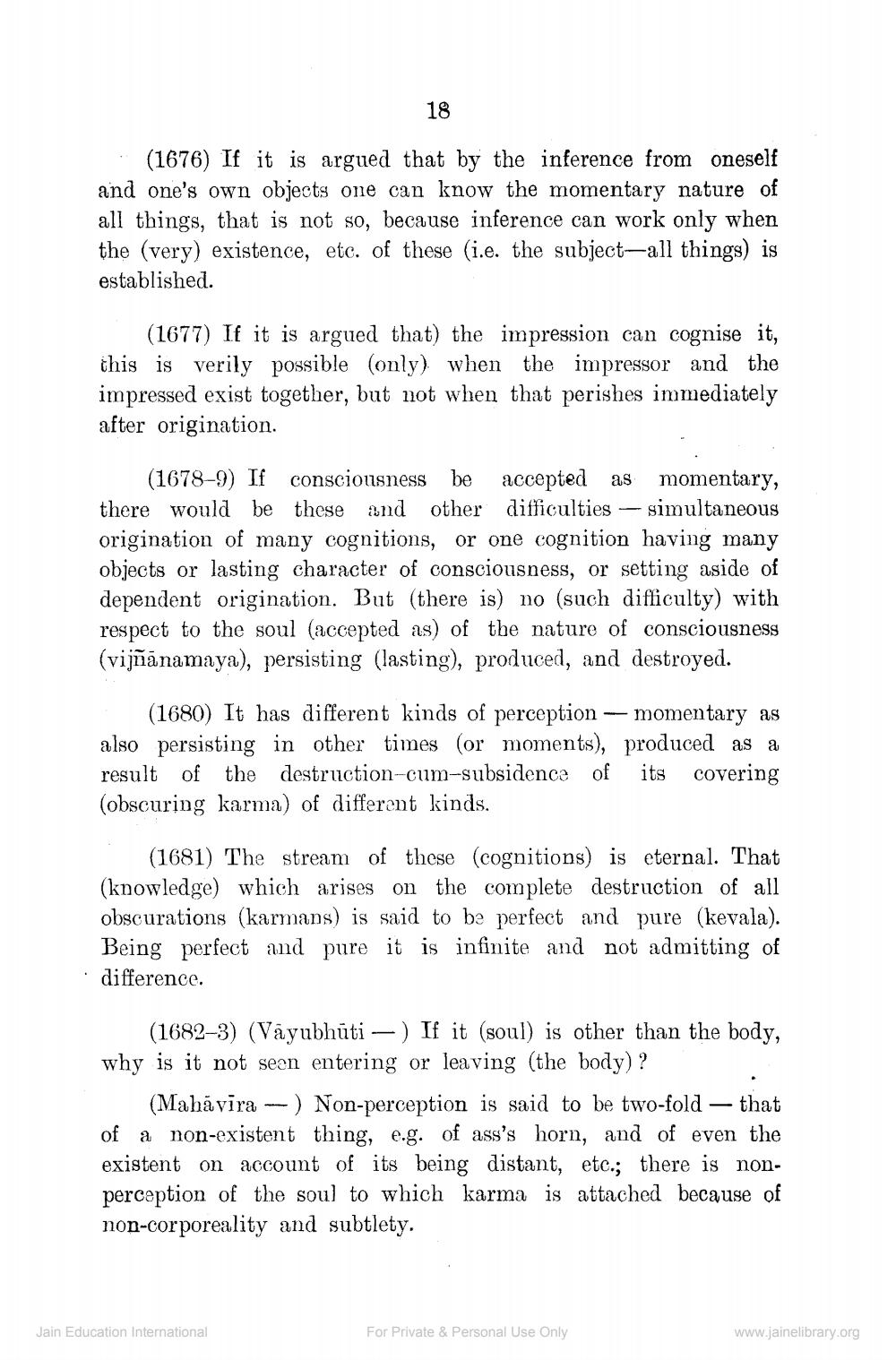________________
18
(1676) If it is argued that by the inference from oneself and one's own objects one can know the momentary nature of all things, that is not so, because inference can work only when the (very) existence, etc. of these (i.e. the subject—all things) is established.
(1677) If it is argued that) the impression can cognise it, this is verily possible (only) when the impressor and the impressed exist together, but not when that perishes immediately after origination.
(1678-9) If consciousness be accepted as momentary, there would be these and other difficulties — simultaneous origination of many cognitions, or one cognition having many objects or lasting character of consciousness, or setting aside of dependent origination. But (there is) no (such difficulty) with respect to the soul (accepted as) of the nature of consciousness (vijñānamaya), persisting (lasting), produced, and destroyed.
(1680) It has different kinds of perception -- momentary as also persisting in other times (or moments), produced as a result of the destruction-cum-subsidence of its covering (obscuring karma) of different kinds.
(1681) The stream of these (cognitions) is eternal. That (knowledge) which arises on the complete destruction of all obscurations (karmans) is said to be perfect and pure (kevala).
Being perfect and pure it is infinite and not admitting of • difference.
(1682-3) (Vāyubhūti — ) If it (soul) is other than the body, why is it not seen entering or leaving (the body) ?
(Mahāvīra - ) Non-perception is said to be two-fold — that of a non-existent thing, e.g. of ass's horn, and of even the existent on account of its being distant, etc.; there is nonperception of the soul to which karma is attached because of non-corporeality and subtlety.
Jain Education International
For Private & Personal Use Only
www.jainelibrary.org




